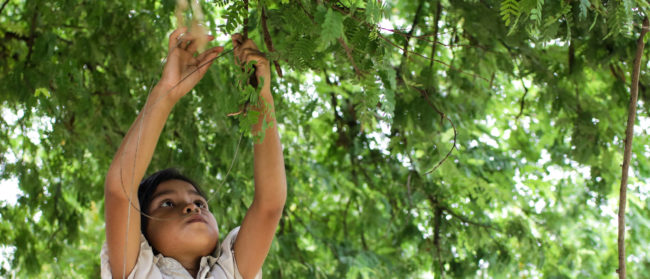The world’s longest internet ban is continuing in eight townships of conflict torn Rakhine state, where the impacts on women are giving rise to major concern among civil society organisations.
The internet blackout – in place since June 21, 2019 – is exacerbating an already escalating human rights situation in western Myanmar, and without news or access to public health information, civilians are being left ill equipped to protect themselves. For women in particular, victims of sexual violence in what is an increasingly fractured part of the country, this isolation from the outisde world leaves them vulnerable to abuse.
Myanmar’s National League for Democracy-led (NLD) government has given no indication of resuming internet access to the thousands of civilians impacted by the 16-month shutdown. Telecom companies have said the government initially ordered the ban to prevent “illegal activities” as fighting continues between the Burmese military and the Arakan Army (AA), an ethnic armed group declared a terrorist organisation in March.
Fighting between the AA and the Tatmadaw shows no signs of abating – a situation largely obscured in international headlines beneath the high-profile rights abuses being committed against the Rohingya in the state.
A tally from Radio Free Asia indicates that since fighting between the AA and the Tatmadaw began escalating in December 2018, 300 civilians have been killed (among them 42 children under the age of 18). An additional 640 have been injured, with internal displacement also resulting in over 200,000 civilians fleeing violence.
Saw San Nyreim Thu, Chairperson of the Rakhaing Women’s Initiative Organization (RWIO), told the Globe that a lack of stability in Rakhine State during the internet shutdown has had specific impacts on young women and girls, who face gender-based violence as the conflict rages in the region.
Now, the lack of internet access is making reporting and tracking this violence significantly harder.
“As a result of the information blackout, survivors are unable to send information [about their case] to the authorities, women’s groups or other relevant civil-society organisations,” Saw San Nyreim Thu said.
While violence has raged outside, within the home, too, it has only increased as the government has attempted to stem the spread of Covid-19. While stats for blacked-out Rakhine state are hard to come by, local women’s organisations across the country have reported rises in gender-based violence under community lockdowns.
In May, the Karenni National Women’s Organization said reported cases of domestic violence had tripled from an average of four to 12 a month amid the lockdown, while in April the Akahya Women reported a spike in domestic violence cases on their usual 200 complaints a year.
The rising number of Covid-19 cases, which have seen a drastic spike in Myanmar since late-August, has also limited access to social services, relied upon by many women for referral support to counselling, legal advice, medical treatment and access to safe housing.
Not having the internet has made things more difficult … Although phone calls and SMS services are available, that is not enough to express what is happening in conflict areas and how it is impacting those at risk
In Rakhine state, in an effort to protect vulnerable people during the lockdown and internet blackout, organisations like RWIO and other rights-based groups have met in recent months with State authorities and asked for restored internet access and eased movement restrictions.
However, Saw San Nyreim Thu is not overly optimistic.
“Not having the internet has made things more difficult,” she said. “Without it, we cannot travel and there is no way to solve these problems. Although phone calls and SMS services are available, that is not enough to express what is happening in conflict areas and how it is impacting those at risk.”
RWIO is continuing to provide prevention and protection services to Rakhine women during this time. Though this too, is not without its challenges, she said.
“Without permission to travel to conflict areas, it is difficult to deliver humanitarian aid to conflict affected people.”
In August, internet services were restored to eight townships in Rakhine and Chin state, but only 2G was made available. This allowed only for voice calls and limited data use, which locals quickly said wasn’t nearly enough to function.
Maung Saungkha, Founder and Executive Director of Freedom of Expression organisation, Athan, said that their data has shown an increase in conflict in Rakhine state since the internet shutdown, with many more human rights violations being committed.
“Women and children are especially at risk,” said Maung Saungkha. “It is a protection concern for women who cannot call their husbands for help or support if they are working in foreign countries. Some may run away from home. The daily suffering has become normalised.”
He emphasised how the lack of internet connection makes it easier for violence to take place as “no one is held accountable”.
As the situation unravels further, the internet shutdown compromises support services typically available for women and vulnerable groups living in Rakhine.
“When the fighting happens, villagers have to flee from their villages and have no chance to communicate with civil society organisations or the media to give information about what they are facing,” said Saw San Nyreim Thu.
Shunn Lei, a Myanmar documentary filmmaker and feminist activist at the Rainfall Gender Study Organization, said that women currently being unable to access information is simply continuation of a longstanding condition in the country.
“Traditionally, women were never able to access information. They were locked up in the house once they reached puberty to spend time in the kitchen and cook,” she said. “With the internet blackout, it has made it even more difficult for women to get information, especially with so much shared through social media.”
Notably concerning is that women cannot report crimes that are perpetuated against them during the blackout, she added.
“The internet blackout is blocking the voices of the most marginalised who may only have access to online platforms and mainstream media.”


